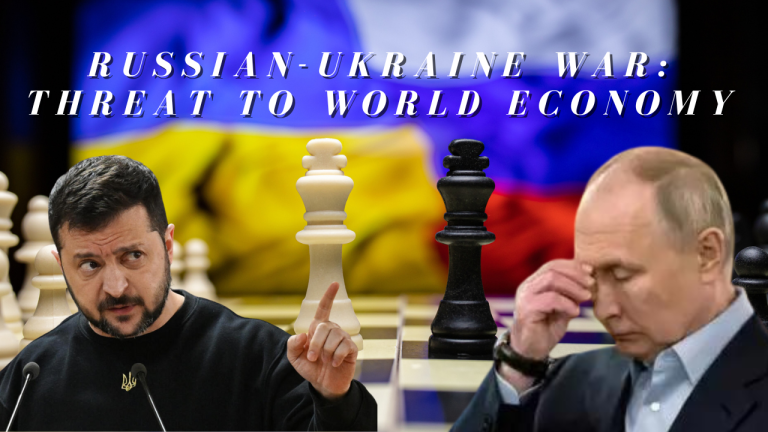Introduction About Russian-Ukrain War:
The medium and long-term consequences of the Russian-Ukrain War on the global Economy will depend on which option world leaders choose. Russia’s military actions in Ukraine demonstrate that Russia has already chosen a far-fetched alternative. Likewise, the US, European Union, and other governments have implemented the ‘sanctions’ option, which will harm not only Russia but themselves as well.
- There is no such thing as a good time to engage in war. However, the present time is not worth talking about. The world is going through a transition period due to the ongoing pandemic. For more than two years, the global economy has been completely devastated by the effects of the novel coronavirus (COVID-19). The production and marketing system was almost completely inoperative at this time. Innumerable businesses went bankrupt, adversely affecting the national economy. In 2020 alone, the world’s gross domestic product has declined by 3.4 percent. As the world prepares to slowly recover from this natural crisis, the Ukraine-Russia war will further slow that pace.
- The ideological conflict between Ukraine and Russia is long-standing. Russia wants the Ukrainian government to be a shadow of Russia. On the other hand, Ukraine wants to build itself politically and economically away from Russia’s ideals in Western style. In the meantime, Ukraine’s President Voshnadimir Zelensky is determined to join NATO. If Ukraine succeeds in this goal, Russia’s ambitions to become a post-Soviet superpower will be thwarted. NATO has already expanded eastward to include many independent states that broke away from the former Soviet Union. This expansion of NATO is very disliked by Russia. Russia does not want NATO knocking at its door. Because the country has been saying for a long time that it will disturb Russia’s national security. Therefore, experts believe that Russia will resist Ukraine’s accession to NATO at any cost.
Needless to say, Russia will use its oil and natural gas as a trump card in retaliation for sanctions imposed by the international community. Once in 2021, Russia cut its gas supplies to Europe as the Ukraine crisis deepened. Moscow then stopped selling excess natural gas except for its contracted gas. And that’s why the price of gas in Europe has increased. International crude oil prices have seen a surge since Russia’s military operation in Ukraine. Oil prices are currently around $105 per barrel, which was last seen in 2014 when crude oil prices were at record highs. Gas prices are also increasing accordingly. If Russia pulls off a rush to supply oil and natural gas, there are big questions about how the world will meet the necessary energy demand.
- At the current rate of increase in energy prices, inflation will increase in most countries of the world. If that happens, managing inflation will become complicated for the central bank. Already, unprecedented expansionary monetary policy is in place around the world to overcome the negative impact of Corona. Changing this policy now will threaten the recovery of the economy. On the other hand, efforts have been made to deal with the effects of Corona with all the weapons in the possession of the central bank. In this situation, experts believe that there is no effective policy to deal with inflation. That is, if the Russia-Ukraine war continues for a long time, the prosperity and well-being of the common people will be at serious risk.
Now it remains to be seen whether Russia will respond to them symbolically or whether Russia’s adversaries impose further sanctions. As sanctions and countermeasures escalate, the consequences for Russia will be dire. However, the world economy is not free from this risk at all.
“Russian-Ukrain War” Stay tuned to know more about this topic.
